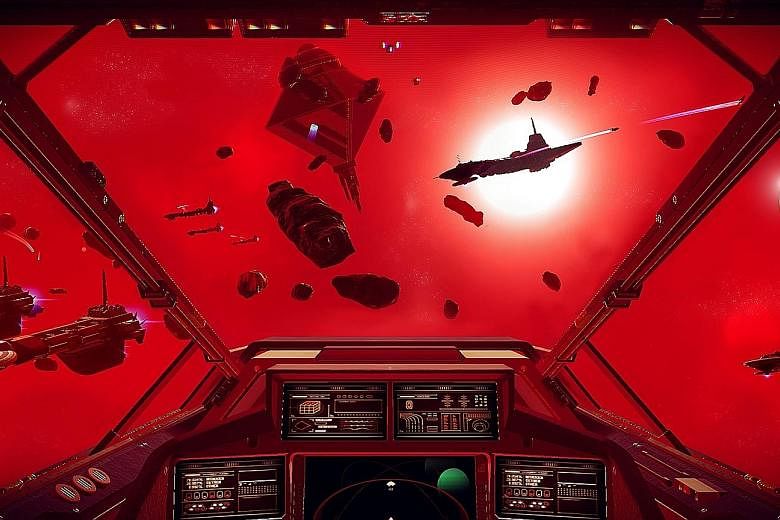I have been playing video and PC games since my school days, and have been reviewing these games for 12 years now. But, three weeks ago, I encountered a game that stumped me as a reviewer. That game is No Man's Sky.
Released earlier this month on PlayStation 4 ($69.90, version currently under review) and for PCs, No Man's Sky is a survival sci-fi action-adventure game set in our universe.
You get to explore 18 quintillion - 18,446,744,073,709,551,616 to be precise - planets. Each planet has its own unique landscape, weather, flora and fauna. There are also different galaxies, solar systems and intelligent alien races to discover.
Hello Games, the indie developer behind No Man's Sky, used a technique known as procedural generation to create such a vast universe. The computer program was given a set of instructions and rules on how to create the planets and systems, and the program went about constructing the universe.
The game starts with you crash-landing on a random planet. You need to salvage resources to repair your starship so that you can leave that planet and move on with your galactic exploration.
You have to mine different elements or resources - from carbon to plutonium - to not only repair your ship, but also to recharge your multi-tool (for mining) and your exosuit (for protection in all environments). This is where the grind begins.
 No Man's Sky has an enormity that dwarfs any game out there. PHOTO: HELLO GAMES
No Man's Sky has an enormity that dwarfs any game out there. PHOTO: HELLO GAMES
You also need to craft items out of the resources you gathered, in order to fix your starship. Once you have repaired your ship and moved out of the planet, new explorations beckon. You might also run into hostile life forms which will attack you without provocation.
Whenever you discover new locations, planets or systems, you can upload them to the Galactic Network to earn credits. You can use these credits to upgrade your ship or multi-tool, as well as buy rare resources.
In short, No Man's Sky has an enormity that dwarfs any game out there and a premise that is different. In fact, it feels so different that it has triggered a flood of negativity from many gamers, who lambasted the game's unnecessary grind and seemingly goalless nature.
I'll admit: Even after playing for more than 30 hours, I still don't think I can review this game. I am still learning something new every time I play it - be it a new planet, a new alien word, or a new mineral.
But this is also why I am not among the naysayers. I don't think there is any game that can give you such longevity in terms of gameplay.
Granted that at times it might lack objectives or a solid storyline. But it is the same for other role-playing games where you have to get items to craft potions or weapons.
Yes, it might be repetitive but most games are repetitive. Are you not catching your 800th magikarp in Pokemon Go?
Some asked what's the point of the game. Well, the same thing can be said for every game. Even after you have completed all your quests and saved the world, it is still ultimately a game.
Playing a game has always been more about the journey than the destination. How many of us who have played Skyrim or Fallout 4 ended up playing more side-quests than the main storyline quests? I'm one of those.
No Man's Sky might not be life-changing or a cultural phenomenon. But it is a breath of fresh air in a gaming industry that is chock-full of first-person shooters and multiplayer online battle arena games.


